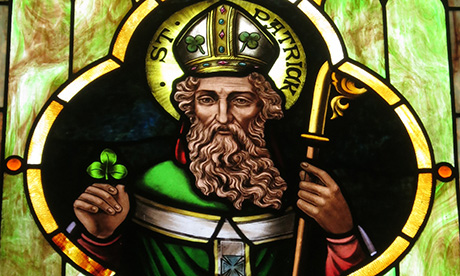August can often be a quiet time in the news and opinion cycle.
But the quiet was disturbed this year in Ireland with the publication on Aug. 16 of the synthesis document for Ireland’s contribution to the universal synod on synodality.
The Irish Times, Ireland’s premier newspaper, led with the news on Aug. 17, proclaiming that “Irish Catholics demand changes in church” and focusing in particular on issues like the church’s attitude to women, L.G.B.T. people and those who have been divorced and remarried.
They quoted former President Mary McAleese, who also has a doctorate in canon law from the Pontifical Gregorian University in Rome and who described the document as “explosive, life-altering, dogma altering, church altering.”
Later in the week, in an editorial, The Times came back to the topic and concluded that “unless the church can change, its survival in Ireland is an open question.”
The week concluded with one of its columnists, Breda O’Brien, offering her opinion in a piece headed “Catholic Church is not a democracy so forget about radical change” and concluding with the words: “But those waiting for the church to become something it is not will wait in vain.”
As the dust settles on this controversy, what is it saying about the synodal process initiated by Pope Francis and now completing a global consultation stage?
Those waiting
for the church
to become something
it is not
will wait in vain.
For all the buzz surrounding its publication, the Irish document is both sober and humble in tone and yet inspiring and hopeful.
It notes in the introduction the difficulties around engaging the young and disaffected, the fears of some that the exercise would be just listening without any action, that “gatekeepers” would filter proposals or that certain topics would be vetoed and the final document censored.
This sense of apathy, indifference, even scepticism and cynicism gradually gave way on the part of those who engaged, and people began to enjoy the safe, patient, listening environment that supported honesty and transparency.
This sense of apathy, indifference, even scepticism and cynicism gradually gave way on the part of those who engaged, and people began to enjoy the safe, patient, listening environment that supported honesty and transparency.
Not all shared this positive view of the process: Some feared that the essential teaching and practice of the church would be undermined.
But when the compilation of the fruits of this consultation were presented by the National Synodal Steering Committee to a National pre-Synodal Assembly in Athlone in June, there was a palpable sense of peace and even joy. People felt that they had been “heard,” that the discernment process had reached a point of “confirmation.”
The contents set out more formally in the August document covered a variety of different themes.
These ranged from abuse as part of the story of the church to
- co-responsible leadership,
- the role of clergy,
- lay ministry,
- the need to develop a greater sense of belonging,
- the role of women (with calls for equal treatment in leadership and decision making and access to ministries ordained and non-ordained),
- L.G.B.T. people (a more welcoming approach and, from some,
- a request for change in teaching),
- sexuality and relationships (the theology underlying current teaching is but one strand in a far richer tapestry),
- adult faith formation,
- liturgy (funerals and other special occasions are done well, but in general, liturgies are “boring, monotonous, jaded and flat: they no longer speak to people’s lives”),
- youth,
- education and catechesis,
- family,
- the Covid-19 pandemic, and
- culture.
The document goes on to note various issues that were not strongly present in the consultation:
- the wider ecumenical and interfaith context (at a time in Ireland where peace is still a delicate flower in Northern Ireland, and there is a sizable influx of non-Christian immigration to the island);
- the environment (climate change and biodiversity);
- social justice (at a time of a housing crisis in Ireland and many other instances of social injustice);
- the sacramental life of the church (little mention of other sacraments apart from the Eucharist, but also a sense that Irish Catholics may be “sacramentalised but not evangelized”);
- and the missionary outreach of the Catholic Church.
The document concludes with an interesting reflection on the general context of the church in Ireland.
It spoke, for example, of how coming toward the 200th anniversary of Catholic Emancipation, the dismantling of the church’s hegemony in Irish society means that a profound change is being experienced “from a national identity overly dependent on Catholic culture, to one suspicious and often intolerant of its Catholic inheritance.”
The dismantling of the church’s hegemony in Irish society means that a profound change is being experienced “from a national identity overly dependent on Catholic culture, to one suspicious and often intolerant of its Catholic inheritance.”
There is no romanticization of the process of synodality itself.
Echoing the words of Pope Francis that the translation of the rhetoric of synodality into the reality of ecclesial life can often be “wearisome,” the Irish report concludes that “a synodal process is not easy—it often entails the Way of the Cross,” and yet “the church in Ireland is heartened by the enthusiasm, energy and expectation generated,” which has “whetted our appetite for what lies ahead.” (The Irish Catholic Bishops’ Conference in March 2021 committed the Irish church to a five-year synodal pathway that will continue to harvest the fruits of this initial consultation period.)
A closer analysis of the Irish experience may yield some interesting perspectives of more global interest. Continue reading
Additional readingNews category: Analysis and Comment.




